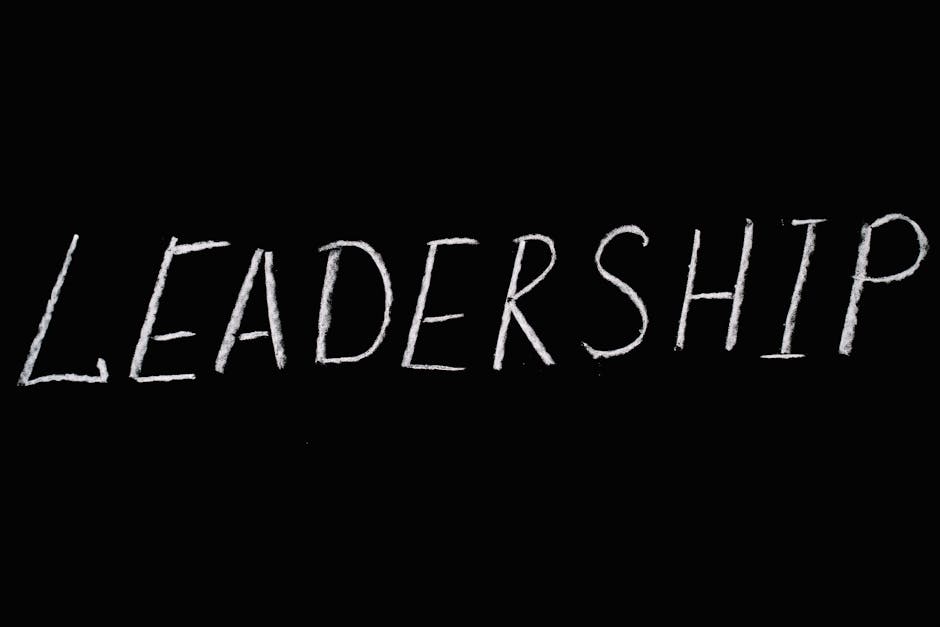Essential Components of a Legally Valid Will in the UK
When creating a legally valid will in the UK, you must verify that your document meets certain essential components. You need to have the mental capacity to understand the nature and extent of your property, and your will must reflect your genuine intentions, free from coercion or manipulation. Your signature and witness requirements must be met, with two impartial witnesses signing the document in your presence. The will should use clear and unambiguous language, avoiding technical jargon. Additionally, it’s vital to safeguard your will is free from undue influence or fraud. By understanding these components, you’ll be well on your way to creating a legally binding will that accurately reflects your wishes.
Key Takeaways
• A testator must have mental capacity, free will, and genuine intentions to create a legally valid will in the UK.• The will must be signed by the testator and witnessed by two impartial, mentally competent, and legal-age adults who don’t stand to gain from the will.• The will execution process should occur in a private setting, free from undue influence or coercion, with witnesses serving as proof of the testator’s capacity and intention.• The will must use clear and unambiguous language to avoid disputes or misinterpretations, clearly describing specific gifts and appointments.• The will must not be influenced by external factors, such as undue influence or fraud, and can be revoked or amended at any time during the testator’s lifetime.
The Testator’s Capacity and Intent

When you create a will, you must have the mental capacity to understand the nature and extent of your property, the natural objects of your bounty, and the disposition you’re making of your assets. This means you must possess mental clarity and be of sound mind to make informed decisions about the distribution of your estate.
As the testator, you must have free will, meaning you’re not under duress or undue influence from others. You must be able to comprehend the implications of your decisions and make choices that reflect your true intentions.
Your mental capacity will be assessed based on your ability to understand the value of your assets, your relationships with beneficiaries, and the consequences of your decisions.
Your will must also reflect your genuine intentions, free from coercion or manipulation. You should be able to appreciate the nature of your property, including real estate, investments, and personal belongings.
Additionally, you must be able to identify your natural objects of bounty, such as family members, friends, or charitable organisations that you wish to benefit from your estate.
Ultimately, your mental capacity and free will are essential components of a legally valid will. If you lack the requisite mental capacity or are subject to undue influence, your will may be contested or deemed invalid.
It’s vital to make certain that you have the necessary mental clarity and autonomy to create a will that accurately reflects your wishes.
Signature and Witness Requirements

When creating a legally valid will, you’ll need to confirm that your signature and witness requirements are met.
Specifically, you’ll need to understand who can serve as a witness, the rules governing their signature, and the importance of signing in their presence.
Who Can Witness?
In most jurisdictions, you’ll need two competent adult witnesses who don’t stand to gain from your will to sign the document in your presence. These witnesses play a vital role in validating your will.
When it comes to Witness Eligibility, not just anyone can serve as a witness. The witnesses you choose should be impartial, meaning they shouldn’t be beneficiaries of your will or spouses of beneficiaries. This guarantees that they don’t have a vested interest in the will’s outcome. Additionally, witnesses should be mentally competent and of legal age.
It’s also essential to maintain Witness Confidentiality. Your witnesses shouldn’t disclose the contents of your will to anyone, as this could lead to disputes or challenges to the will’s validity. By choosing trustworthy witnesses, you can confirm that your wishes are respected and your will is executed according to your intentions. Remember, the witnesses’ sole purpose is to verify your signature, not to influence the contents of your will.
Witness Signature Rules
You’ll need to verify that your witnesses sign the will in a specific manner to make it legally binding. Witness signature rules are vital to avoid any potential disputes or challenges to your will’s validity.
It’s vital to alleviate any Witness Anxiety by guaranteeing your witnesses understand the Signature Protocol.
To begin with, your witnesses shouldn’t be beneficiaries of your will or be related to you. This prevents any claims of undue influence or bias. Additionally, your witnesses should be over 18 years old and of sound mind.
When signing, they must do so in your presence, but not necessarily in the presence of each other.
The witnesses should sign their names, along with their addresses and occupations. This information helps to identify them and verify their signatures.
Make certain that your witnesses understand the significance of their role and the importance of their signature.
Signing in Presence
Authenticity is confirmed by requiring you to sign your will in the physical presence of your witnesses, who must also sign the document in your presence, thereby verifying the legitimacy of the signature process.
This signing ritual is vital, as it validates the authenticity of your signature. The presence protocols in place serve as a safeguard against fraudulent activities, providing an added layer of security to the will-making process.
When signing your will, you must follow the specified protocols.
You must sign the document in the presence of two witnesses, who must then sign the will in your presence.
This reciprocal signing process confirms that you, the testator, have voluntarily signed the document, and that your witnesses have witnessed your signature.
Clear and Unambiguous Language

When draughting a will, it’s essential that you use clear and unambiguous language to avoid any potential disputes or misinterpretations of your wishes.
Using vague or ambiguous language can lead to confusion amongst your loved ones, causing unnecessary stress and conflict.
To make certain your will accurately reflects your intentions, it’s vital to use specific vocabulary and follow clarity guidelines.
These are some key considerations to keep in mind:
Avoid using technical jargon: Use simple, everyday language that’s easy for your loved ones to understand. Avoid using legal or technical terms that might confuse them.
Define specific gifts: Clearly describe the gifts you’re leaving, including their location, value, and any conditions attached to them.
Specify your executors: Clearly state who you’re appointing as your executors and what their roles and responsibilities will be.
No Undue Influence or Fraud

While clear language is vital to safeguarding your wishes are respected, it’s equally important to verify that your will isn’t influenced by external factors, as any evidence of undue influence or fraud can render your will invalid.
You must confirm that your decisions are made voluntarily, without any coercive behaviour or manipulation from others. If someone has manipulated your decisions or used coercive tactics to influence your will, it can be deemed invalid.
Undue influence can take many forms, including emotional manipulation, coercion, or exploitation.
For instance, if someone uses emotional blackmail to persuade you to leave them a significant portion of your estate, that could be considered undue influence.
Similarly, if someone takes advantage of your vulnerability or lack of mental capacity to influence your decisions, that could also be deemed invalid.
It’s essential to protect yourself from such situations by having open and honest discussions with your loved ones and advisors.
You should also consider having a trusted friend, family member, or legal professional present when making important decisions about your will.
By doing so, you can confirm that your wishes are respected and your will remains legally valid.
Proper Execution and Attestation

As you prepare to finalise your will, it’s vital to verify that you’ve satisfied the requirements for proper execution and attestation.
You must sign your will in the presence of witnesses, who’ll then attest to your signature.
Signing the Will
You must sign your will in the presence of two or more credible witnesses, who must also attest to your signature by signing their own names. This signing ceremony is a vital step in validating the authenticity of your will.
In a solo execution, you, as the testator, are responsible for signing the will in the presence of witnesses. To guaranty proper execution and attestation, follow these essential steps:
- Verify you sign the will in the presence of two or more credible witnesses.
- The witnesses must sign the will in your presence, confirming they’ve witnessed your signature.
- The signing process should be conducted in a private setting, free from undue influence or coercion.
Witness Requirements
Witnesses play a crucial role in the will execution process, as their presence and signatures serve as proof of the testator’s voluntary and intentional act of signing the will.
You should verify that your witnesses meet the legal requirements to avoid any potential issues with the will’s validity. In the UK, you’ll need two witnesses who aren’t beneficiaries of the will, nor are they the spouses of beneficiaries. This is to prevent any potential Witness Conflicts of interest.
When choosing your witnesses, select individuals who are impartial and can attest to your capacity and intention to sign the will. Typically, witnesses are individuals who aren’t closely related to you, such as friends, neighbours, or colleagues.
With the rise of remote work and digital communication, the concept of Virtual Witnesses has emerged. However, in the UK, having physical witnesses present at the signing of the will is imperative.
This guarantees that the witnesses can attest to your signature and confirm that you signed the will voluntarily and with full capacity.
Revocation and Amendments

A will can be revoked or amended at any time during the testator’s lifetime, allowing them to change their mind or reflect changes in their personal circumstances. This flexibility is vital, as your wishes and priorities may evolve over time.
When it comes to revoking a will, you should be aware of the revocation rules. A will can be revoked by:
- Destroying the original document with the intention of revoking it
- Creating a new will that explicitly revokes the previous one
- Executing a formal deed of revocation
In addition to revocation, you may also need to make amendments to your will. Amendment formalities are vital to make certain that any changes are legally binding. To amend your will, you can create a codicil, which is a supplementary document that alters or adds to the terms of your original will.
You must sign and witness the codicil in the same way as your original will, as this is necessary for the codicil to be legally valid.
Conclusion
As you finalise your will, remember that a single misstep can render it invalid.
You’ve verified the testator’s capacity and intent, secured proper signature and witness requirements, and used clear language.
But what if someone contests it, claiming undue influence or fraud?
Stay vigilant, for even a minor mistake can have devastating consequences.
Your legacy hangs in the balance – are you prepared to take that risk?
Contact us to discuss our services now!
